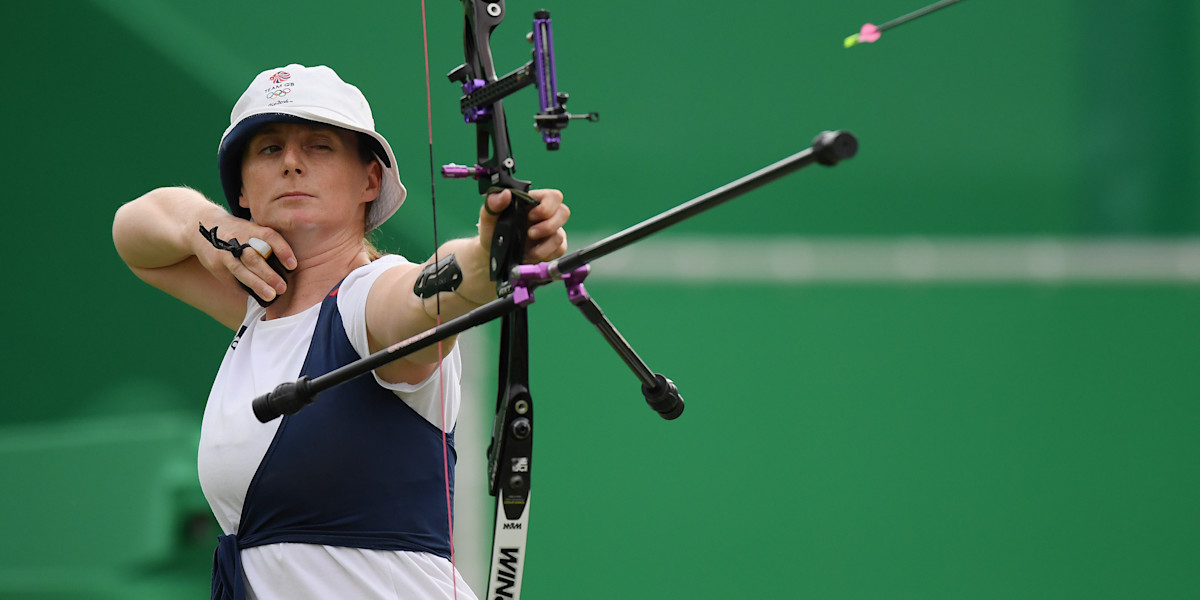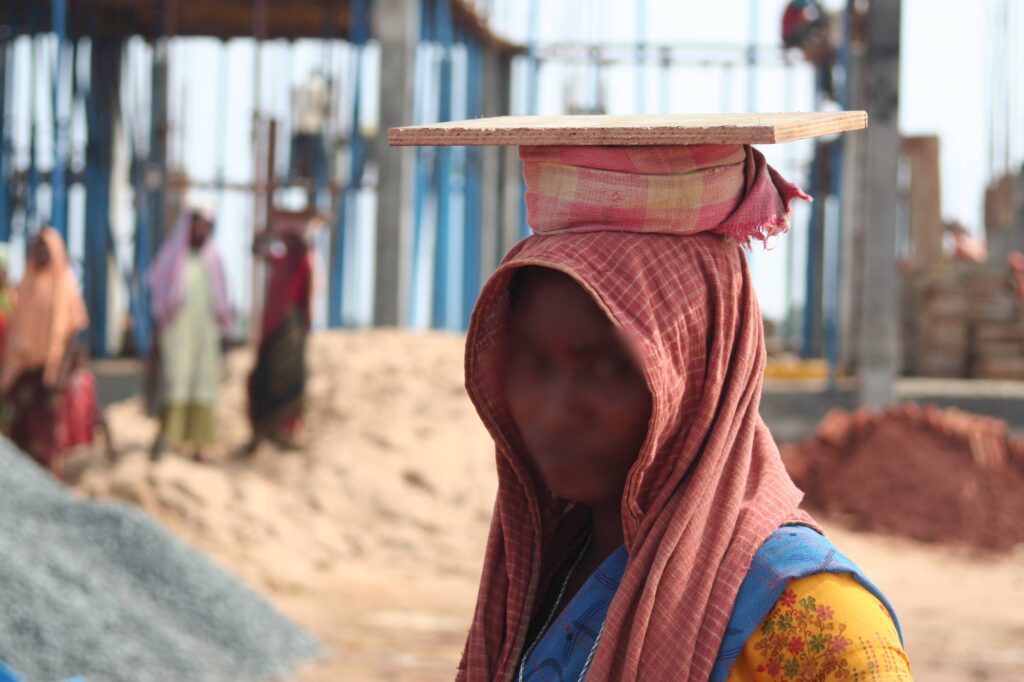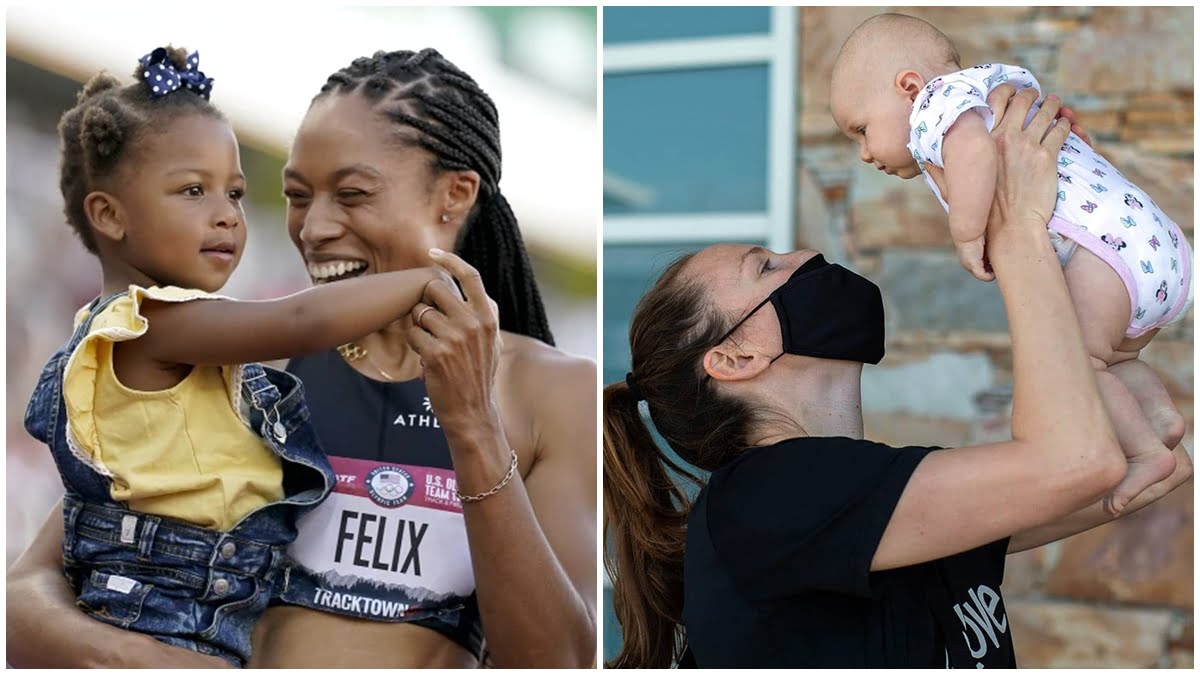In March, the International Olympic Committee and the Tokyo 2020 Olympic Organizing Committee announced that the Tokyo Games would be the “first gender-balanced Olympics Games in history”. From the right to breastfeed to fighting to qualify, sportswomen who are mothers have been battling against societal narratives of motherhood and smashing stereotypes for years. Maternity leave and pregnancy have been recorded as often leading to a big cut reduction in sponsorship money. It has taken decades for motherhood to be considered a normal part of a female athlete’s journey.
From the right to breastfeed to fighting to qualify, sportswomen who are mothers have been battling against societal narratives of motherhood and smashing stereotypes for years.
After a break with long-time sponsor Nike, Allyson Felix’s quite vocal advocacy has forced major corporations to reconsider how they support female athletes before and after pregnancy. Felix, who has a child of her own Camryn, has been advocating for female athletes to receive child-care help as they train for their sport. Canadian basketball player Kimberly Gaucher faced the tough choice of either not participating in the Summer Games or not be able to breastfeed her child for 28 days, since the authorities did not let families join the players this time, due to the pandemic. An emotional Instagram post by Gaucher led Tokyo to relent but the situation did not change for all.
Naomi Folkard, a British archer, had to pump 14 litres of milk before leaving for her 15 days in Tokyo.

Also read: Commodified And Consumed: To Whom Does The Sportswoman’s Body Belong?
Shortly after facing public backlash regarding its treatment of pregnant athletes like Felix, Nike announced a new maternity policy for sponsored athletes back in August 2019. The new policy expanded the amount of time a pregnant athlete’s pay and bonuses cannot be cut, from 12 to 18 months. However, even today, when it comes to childcare during the Games, women often have to organise — and pay for it themselves.
In July 2021, Felix stated that she had set up a $200,000 (€170,073) fund with the Women’s Sports Foundation and her sponsor for female athletes to receive assistance with childcare costs. With nine women as beneficiaries currently, each of them receives $10,000 to cover childcare costs as they train and participate in competitions.
It is not only in the field of sports that working mothers face discrimination. Reports indicate that more than 50 percent women chose to not return to work after having a baby. According to a government report on workplace discrimination towards pregnancy in Australia published under Elizabeth Broderick, a sex discrimination commissioner, the issue has far reaching implications beyond just the women and their families, with even adverse effects on the businesses and the economy. The discrimination started right from the level of job applications.
According to the UN Women, more than 80% of women in South Asia who do not work in the agricultural sector are informal sector workers; in sub-Saharan Africa, they are 74%; in Latin America and the Caribbean, 54%. Not only are these women employed under despicable working conditions for pay that is considerably lower than men and low in general, they are also not provided social protection benefits that come with paid employment, such as maternity protection, health insurance, retirement pension, other paid leave etc.

In 2016, the International Labour Organisation (ILO) published the report “Motherhood wage pay” which showed how wage gaps exist not only between men and women, but also between mothers and women who do not have children.
In 2016, the International Labour Organisation (ILO) published the report “Motherhood wage pay” which showed how wage gaps exist not only between men and women, but also between mothers and women who do not have children.
In a comprehensive research study by Anne-Marie Slaughter, it was found that influential women with the privilege to exercise choices, believe that most women will feel more comfortable to lose on or sacrifice their career for family than men. “I do not believe fathers love their children any less than mothers do, but men do seem more likely to choose their job at a cost to their family, while women seem more likely to choose their family at a cost to their job,” Slaughter observed. Men continue to be socialized into believing that their primary family obligation is to be the breadwinner; women, to believe that their primary family obligation is to be the caregiver.
Conditions are even worse for working mothers trying to juggle with their family and career with the work-from-home revolution. According to a new study in Germany, which the Times reported on, the cultural shift to working from home has in fact ‘entrenched old-fashioned gender roles.’
Also read: The Working Mother and The Fallacy Of The Ideal Employee
Instead of deconstructing gender and assigned roles to achieve a more balanced lifestyle, it turns out that the work-from-home situation left mothers spending more hours on childcare than their male counterparts, who were found devoting more hours to their work. The study seems to show that while men who work from home could evade childcare duties to give more time to the job, the mothers dealt with “double the burden”, by taking on extra childcare hours as well as doing work overtime.
Patriarchal societal norms have always defined a good mother as primarily a care-taker and a good father as primarily the bread-winner, which in turn which puts both men and women in rigid hierarchical moulds. As long as societal discrimination at workplace against mothers continue, laws can bring about only so much difference to this issue. It is important that child rearing be seen as a shared responsibility of both partners and more employers readily ensure women do not have to be torn between building their families and building their careers.
About the author(s)
Anne Mary Shaju is a first year M.A.History student at University of Delhi. She is a student of history whose fields of interest includes gender, subaltern, oral, social, political and economic histories. You can find her on Instagram.





For the first time in history, gender equality has been taken into consideration in the context of a major event like the Olympics, which is seen as a major victory for feminism. May this be a great start to the changes that deserve the real intentions of feminism in more areas!